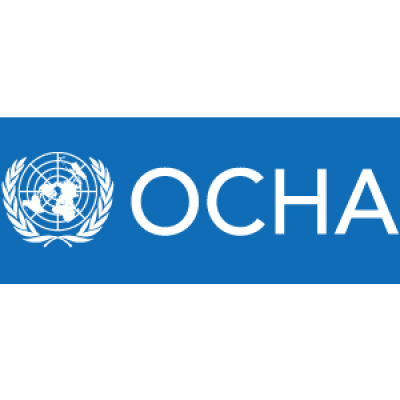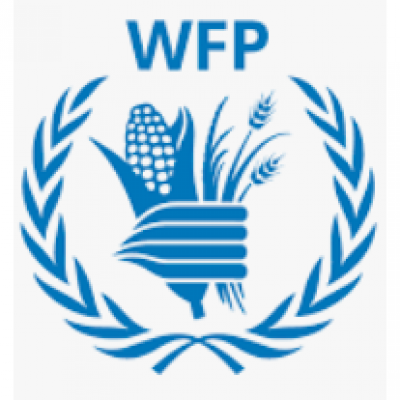Details
Description
Background
1. Background
UN Women, grounded in the vision of equality enshrined in the Charter of the United Nations, works for the elimination of discrimination against women and girls; the empowerment of women; the achievement of equality between women and men as partners and beneficiaries of development; human rights; as well as humanitarian action and peace and security. Placing women's rights at the centre of all its efforts, UN Women leads and coordinates United Nations (UN) system efforts to ensure that commitments on gender equality and gender mainstreaming translate into action throughout the world. It provides strong and coherent leadership in support of Member States' priorities and efforts, building effective partnerships with civil society and other relevant actors.
More than 30,000 individuals, including family members, from more than 80 countries are believed to have travelled to Syria and Iraq to join Da’esh and other UN designated terrorist groups. While some family members joined voluntarily, many others were forced, manipulated, or coerced to travel with family members or to follow them. Moreover, thousands of children were born into the conflicts in Syria and Iraq to foreign parents. In Central Asia, Kazakhstan is one of the few countries that has repatriated the majority of its nationals from both Syria and Iraq. This includes 420 children some of whom had never been to Kazakhstan, needed to acquire an additional language, and were meeting the relatives who will care for them for the first time. Since 2019, in Kazakhstan, the rehabilitation centres for women and children returning from conflict areas were organized to support their resocialization and adaptation. Authorities helped the women to obtain a job, receive documents and adapt to a peaceful life. Since 2018, Tajikistan has received 19 returning children from Syria and has repatriated 84 children from Iraq. While the 19 returnees from Syria were reintegrated to communities of origin, the 84 returnees from Iraq remain in residential institutions and have yet to be reunified with families and communities of origin. Tajikistan requires stronger and more consistent support from the UN as it lacks experience in reintegrating children and women affected by armed conflict back into society. Efforts have already begun by engaging Tajikistan in regional dialogues on reintegration approaches taken by other Central Asian countries. Since May 2019, Uzbekistan has implemented three campaigns to repatriate its citizens from Iraq and Syria. Of its 220 repatriated Uzbek nationals from Syria and Iraq, 172 were children, and 48 were women who were given legal amnesty which allowed them to be reintegrated into communities with their children or family members. In December 2020, an additional 25 Uzbek women and 73 children who had been living in armed conflicts zones in Syria were repatriated. In addition to repatriations from Syria and Iraq, Uzbekistan has repatriated a number of women and children from Afghanistan.
Under its regional Women, Peace and Security, and Humanitarian Action portfolio, UN Women will focus on four countries in Central Asia - Kazakhstan, Tajikistan, Uzbekistan and possibly Kyrgyzstan - and will work under specific results areas relevant to each country’s context. The overall objective of the project is to support States in Central Asia in the rehabilitation and reintegration of their citizens returned from conflict zones. The project is being implemented through two joint UN Programmes in Central Asia: (i) with the United Nations Children’s Emergency Fund (UNICEF) and European Union (EU) in Kazakhstan, Tajikistan, Uzbekistan, and possibly Kyrgyzstan; and (ii) with the United Nations Office of Counter-Terrorism (UNOCT) and United States Agency for International Development (USAID) in Uzbekistan. In cooperation with the UN system in Central Asia the project envisions to provide child and human rights-based, age and gender-sensitive technical assistance to Kazakhstan, Tajikistan, Uzbekistan, and possibly Kyrgyzstan to support families of the returnees from primarily Syria and Iraq. The project will increase advocacy and contribute to national efforts to effectively mainstream gender and human rights perspectives in policy frameworks, processes, and measures to address Screening, Prosecution, Rehabilitation and Reintegration (SPRR) at the national level. The project will also leverage experience gained from work in the four participating countries to facilitate information exchange and dialogue on gender-sensitive recovery and rehabilitation measures with other Member States in the Central Asia region.
Reflective of the above, the UN Women Europe and Central Asia Regional Office is seeking to recruit an International Gender Expert and Trainer to plan and conduct workshops, consultations, and trainings to build capacity of national partners and local actors in the rehabilitation and reintegration of women, children and families.
Duties and Responsibilities
2. Goal and Objectives
The main objective of this consultancy is to provide expert support to train, advise, mentor, and strengthen the capacities of national partners, civil society, women’s organizations, service providers and relevant local partners to mainstream gender and gender responsive support across community-based activities and recovery measures.
3. Scope of Work and Specific Tasks:
Under guidance of the UN Women Regional Office for Europe and Central Asia and under the supervision of the Programme Coordinator (UN Women in Kazakhstan), the Gender Expert and Trainer will perform the following tasks in collaboration with UN agencies and national partners in participating countries:
Plan and deliver online media workshops on gender equality issues faced by women and children returned from conflict zones, and gender-sensitive reporting:
Develop detailed plans for three half-day media workshops with agenda and include a mix of theory and practical sessions
Prepare the training package (modules, presentations, training materials and resources kits) to provide participants with a better understanding of:
Gender equality issues faced by women and children returned from conflict zones
How to challenge gender stereotypes in media coverage
Encourage equal portrait of returnee women, children and families
Gender-sensitive reporting and human rights, gender equality and leave no one behind approaches
Strengthen gender equality in media dialogue
Sensitivities on women and children returnees from conflict zones and to promoting community-based reintegration as well as strengthening resilience, social cohesion, coexistence, and reconciliation
Produce a workshop needs assessment questionnaire, conduct a needs assessment of participants, and analyse the pre- and post- media workshop surveys
Conduct the online media workshops in participating Central Asia countries, and train, advise and, mentor participants (as needed)
Draft and submit reports of each of the media workshops and a final consolidated media workshops report outlining the training process, training package (material, tools, resources), pre-and post-training assessments and recommendations for follow up actions, including any further capacity development needs of the participants.
Plan and facilitate a series of online consultations with multi-stakeholders on gender sensitive policies, programmes, procedures and referral mechanisms, and sharing of best practices from Central Asia:
Develop detailed plans for a series of up to four half-day consultations with thematic topics and agenda, and include a mix of theory and practical sessions for national and sub-regional consultations
Prepare the consultations package (presentations, materials, best practices and resources kits) to enhance knowledge and capacity of participants (civil society, women’s organizations, social services providers, relevant government structures and other local and national actors) on gender sensitive policies, programmes, procedures and referral mechanisms for returnees, and sharing of best practices from Central Asia
Conduct a series of online consultations in participating Central Asia countries, and train, advise and, mentor participants (as needed) on gender sensitive policies, programmes, procedures and referral mechanisms across community-based activities and recovery measures for rehabilitation and reintegration of returnees from conflict zones
Draft and submit reports of each of the consultations and a final consolidated consultations report outlining the consultations process, package (material, tools, resources), pre-and post-training assessments and recommendations for follow up actions, including any further capacity development needs of the participants
Plan for and deliver a series of online trainings on gender mainstreaming and gender responsive support across community-based activities and recovery measures for returnees, and present good practices from Central Asia countries
Develop detailed plans for a series of up to six half-day trainings with thematic topics and agenda, and include a mix of theory and practical sessions for national and sub-regional consultations
Adapt UN Women’s training package “Gender and Preventing Violent Extremism” to the context of Central Asia and include as a training session
Prepare the trainings package (modules, presentations, training materials and resources kits) to strengthen capacity of participants (civil society, women’s organizations, social services providers, relevant government structures and other local and national actors) on gender mainstreaming and gender responsive support across community-based activities and recovery measures for returnees, including on gender informed life skills, education, livelihoods, protection, health, etc and gender and preventing violent extremism
Conduct a series of online trainings in participating Central Asia countries and train, advise and, mentor participants (as needed) to increase their knowledge and skills in gender mainstreaming awareness and gender responsive approaches in repatriation and reintegration of returnees from conflict zones
Draft and submit reports of each of the trainings and a final consolidated trainings report outlining the training process, training package (material, tools, resources), pre-and post-training assessments and recommendations for follow up actions, including any further capacity development needs of the participants.
4. Deliverables and Timeline
The International Consultant will be required to support and produce the following indicative key deliverables within a period of 8 months:
Deliverables Timeframe Estimate days to be worked
Work plan with list of monthly deliverables to be updated each month and cleared by Supervisor By 5th of each month NA
Summary report of tasks performed under expected duties and responsibilities, deliverable documents and timesheet On a monthly basis, by 25th of every month Monthly lumpsum
Media workshops training packages (agenda, material, tools, resources) and reports By the 5th day after workshop sessions Up to 10 days
Consultation package (agenda, material, resources) and reports By the 5th day after consultations Up to 20 days
Training packages (agenda, material, tools, resources) and reports By the 5th day after trainings sessions Up to 20 days
Final consolidated report with indication of key achievements and handover notes By 7 October 2022 Final month’s lumpsum
5. Duration of Assigment and Duty Station
The time required for the consultancy is 50 days spread over an 8-months assignment starting 14 February to 14 October 2021.
Due to the continuing and unpredictable COVID-19 pandemic situation, the assignment will be home-based, with no expected travel. Any additional travel that may be requested, in consultation with the consultant, will be financially covered by UN Women.
6. Schedule of Payments
The Consultant will submit monthly reports on all agreed work carried out and completed to the Project Coordinator and Supervisor; this report should include the deliverables completed and number of days worked (timesheet).
Each piece of work will be reviewed by the Project Coordinator and signed off by the Supervisor to ensure that it is of an acceptable standard.
Once agreed, monthly payments will be certified by the Hiring Manager for processing.
Competencies
7. Competencies
Core Values:
Respect for Diversity
Integrity
Professionalism
Core Competencies:
Awareness and Sensitivity Regarding Gender Issues
Accountability
Creative Problem Solving
Effective Communication
Inclusive Collaboration
Stakeholder Engagement
Leading by Example
Required Skills and Experience
8. Qualifications and Experience
Education and certification:
Master’s degree or equivalent in gender studies, social sciences, economics, or any other area relevant to the requirements of the Terms of Reference
A first-level university degree in combination with two additional years of qualifying experience may be accepted in lieu of the advanced university degree
Experience:
At least 8 years of professional experience in gender, women´s rights, women´s economic empowerment, violence against women and girls, and humanitarian action (including conflicts) or related area of work
Proven 7 years professional experience in developing high quality workshop, consultations and training packages on gender equality, women´s economic empowerment and/or violence against women and girls
Proven 7 years professional experience in delivering gender expert trainings and sessions to multi-stakeholders
Experience in programming on initiatives that address the issues affecting women and girls in development and humanitarian settings, including in pre- and post- conflict settings is required.
Experience working in the UN and the Europe and Central Asia region is an asset.
Language and Other Skills Requirements
Fluency in written and spoken English and Russian is required.
Excellent communication skills, writing skills, and analytical skills.



